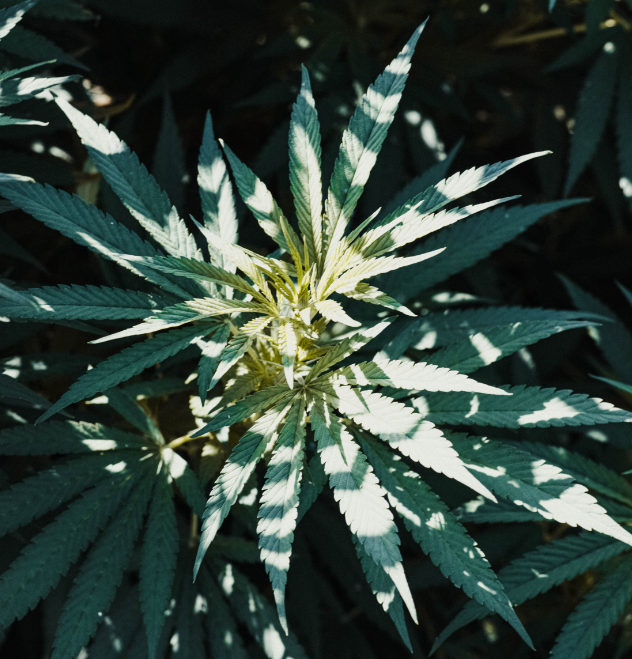Doping has a reputation for undermining fair play in sport and endangering athletes' health. In addition to doping, there are other banned substances and methods that are banned in various sports. There is a doping list drawn up by the World Anti-Doping Agency (WADA). This list contains prohibited substances and methods that are not allowed to be used in sport. Any athlete wishing to compete in an international event must adhere to this list. In this blog article, we will take a closer look at the list of banned substances and methods and why it is so important to the sport. We will also look at some of the most famous cases in the history of the sport. THC in Sport – Is It Banned? And what about CBD? These and other questions will be answered in the course of this blog post.
The list of WADA
Every year, on January 1st, WADA (World Anti-Doping Agency) publishes a list of prohibited substances and methods. Athletes must always find out for themselves which substances or methods are already on the list or are new. A panel of international experts from WADA decides which new substances or methods will find their way onto the list. The use of cannabis containing THC is still a gray area in the world of sport. Although cannabis is on the Prohibited Substances List, it is classified as a “substance of abuse”. In this blog, we discuss the use of THC-containing cannabis in sport and the impact it has on athletes' performance and their standing with anti-doping agencies. We will also look at some athletes' opinions on cannabis use and how it has been received in the sports world. The WADA Panel will include a substance on its Anti-Doping List if it meets at least two of the following three criteria:
- The substance has the potential to increase athletic performance.
- The substance poses a potential health hazard to the athlete.
- The substance goes against the "spirit of sport," meaning it goes against the ethical principles of sport.
What about THC-containing cannabis?
The List of Prohibited Substances and Methods includes a subcategory called Substances of Abuse. This includes substances that are often abused in society outside of the sporting context. Substances of abuse include: cocaine, diamorphine (heroin), methylenedioxymethamphetamine (MDMA/"ecstasy") and tetrahydrocannabinol (THC). Use or possession of a substance of abuse may be penalized less severely, but only if the substance was abused outside of competition and not for the purpose of enhancing performance. But when does a so-called competition begin? The period from 11:59 p.m. on the day before a competition for which an athlete is scheduled until the end of that competition and sampling in connection with that competition is considered to be in-competition. CBD products have been removed from the list of banned substances since 2018. Since CBD is isolated from cannabis plants, CBD products could contain other (banned) cannabinoids such as THC as natural by-products
contain. However, there are CBD products like ZUYA ZERO , which are specially manufactured in such a way that professional athletes do not have to expect any complications during doping control.

Athletes and ex-athletes speaking publicly about cannabis
In recent years, a number of professional athletes have spoken publicly about their cannabis use and shared their views on the use of cannabis in sport. For example, Nate Diaz , a well-known and feared UFC MMA fighter, lit and smoked a joint in a press conference in 2021.
Kevin Durant, active NBA ("National Basketball Association") basketball player and former one-time MVP and two-time Finals MVP, revealed in a Netflix series that he started using cannabis at the age of 22. His comments grabbed the headlines because the NBA actually still bans cannabis use but not random drug testing performs more. Especially in the NBA, cannabis seems to be a widespread, so-called "substance of abuse". Kenyon Martin, former NBA athlete, said in an interview that an estimated 85% of all NBA players used cannabis at one point. Similar numbers are associated with the NFL (National Football Association).

A particularly curious case involving professional sports and cannabis occurred at the 1998 Nagano Olympics. Ross Rebagliati, a Canadian snowbarder, won the first Olympic gold medal in snowboarding history. Rebagliati's drug test came back positive for marijuana. He maintained, and still maintains, that the positive finding was triggered by secondhand smoke, which he unknowingly inhaled at a party. He admitted to having used marijuana in the past but said he quit smoking 10 months before the games began. The story ended positively for Rebagliati. Although the International Olympic Committee stripped Rebagliati of his gold medal two days later, Rebagliati got it back around 32 hours later. The rationale for the withdrawal was as intriguing as the original decision: it turns out that weed was not on the IOC's list of banned substances. (Source: https://bleacherreport.com/articles/1607611-ross-rebagliati-controversial-snowboarder-opens-weed-dispenary-embraces-past )
Conclusion
In summary, WADA publishes a list of Prohibited Substances and Prohibited Methods annually. This is to ensure that competition in sport is as fair as possible. The list includes a category called “substances of abuse,” which includes cannabis containing THC. The use of THC-containing cannabis is publicly debated by some active professional athletes, despite being banned in many sports. The case of Ross Rebagliati, who tested positive for marijuana at the 1998 Olympic Games, shows that there are many gray areas when assessing cannabis doping cases, even in practice. Finally, it is important that athletes are aware of what substances are on the Prohibited Substances List in order not to jeopardize their athletic career.





